A graph of x/m vs pressure at constant temperature is called adsorption isotherm.Explain
Step by step video & image solution for A graph of x/m vs pressure at constant temperature is called adsorption isotherm.Explain by Chemistry experts to help you in doubts & scoring excellent marks in Class 12 exams.
Topper's Solved these Questions
- BOOK - MOTIONCHAPTER - CLASSROOM PROBLEMS EXERCISE - Electrochemistry22videos
CLASSROOM PROBLEMS
- BOOK - MOTIONCHAPTER - CLASSROOM PROBLEMS EXERCISE - Oxidation and Reduction24videos
CLASSROOM PROBLEMS
- BOOK - MOTIONCHAPTER - Chemical KineticsEXERCISE - Exercise - 4 (Level - II) (SUBJECTIVE PROBLEM)1videos
Chemical Kinetics
- BOOK - MOTIONCHAPTER - CLASSROOM PROBLEMS 1EXERCISE - THERMODYNAMICS17videos
CLASSROOM PROBLEMS 1
Similar Questions
A group between x/m and the presure P of the gas at a constant temperature is called adsorption siotherm. Where x is the no. of moles of the adsorbate and m is the mass of the adsorbent. adsoption isotherms of different shaopes have been experimentally observed .. According to frundlich adosroption isthem,
x/m=KP1/n
where K and N are constant paraments depending upon the nature of the solid and gas
Inn the given isotherm select the incorrect statement :
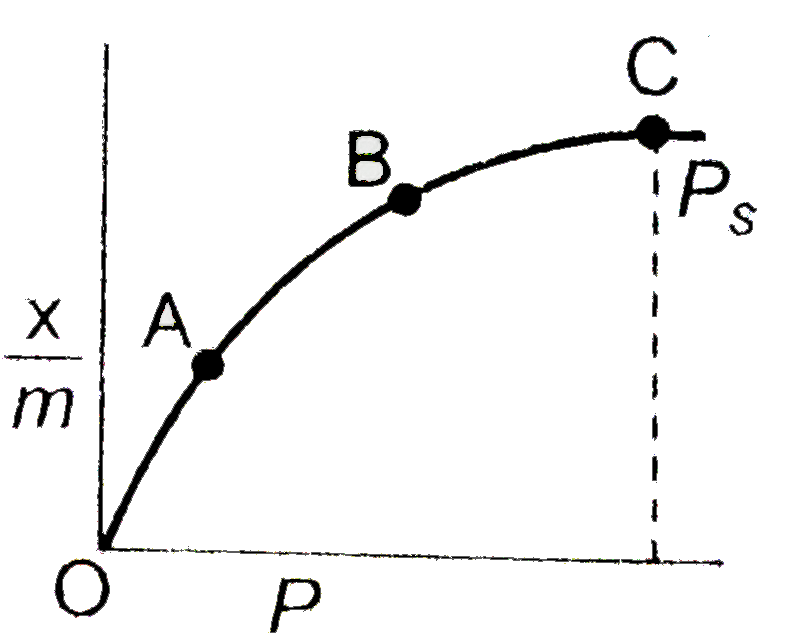 View Solution
View SolutionExplain Freundlich adsorption isotherm.
View Solution
Knowledge Check
- Question 1 - Select One
A group between x/m and the presure P of the gas at a constant temperature is called adsorption siotherm. Where x is the no. of moles of the adsorbate and m is the mass of the adsorbent. adsoption isotherms of different shaopes have been experimentally observed .. According to frundlich adosroption isthem,
x/m=KP1/n
where K and N are constant paraments depending upon the nature of the solid and gas
graph between log (xm) and log P is a straight line a t angle 45∘ with intercept OA as shown .
hence,(xm) at a pressure of 2 atm is :
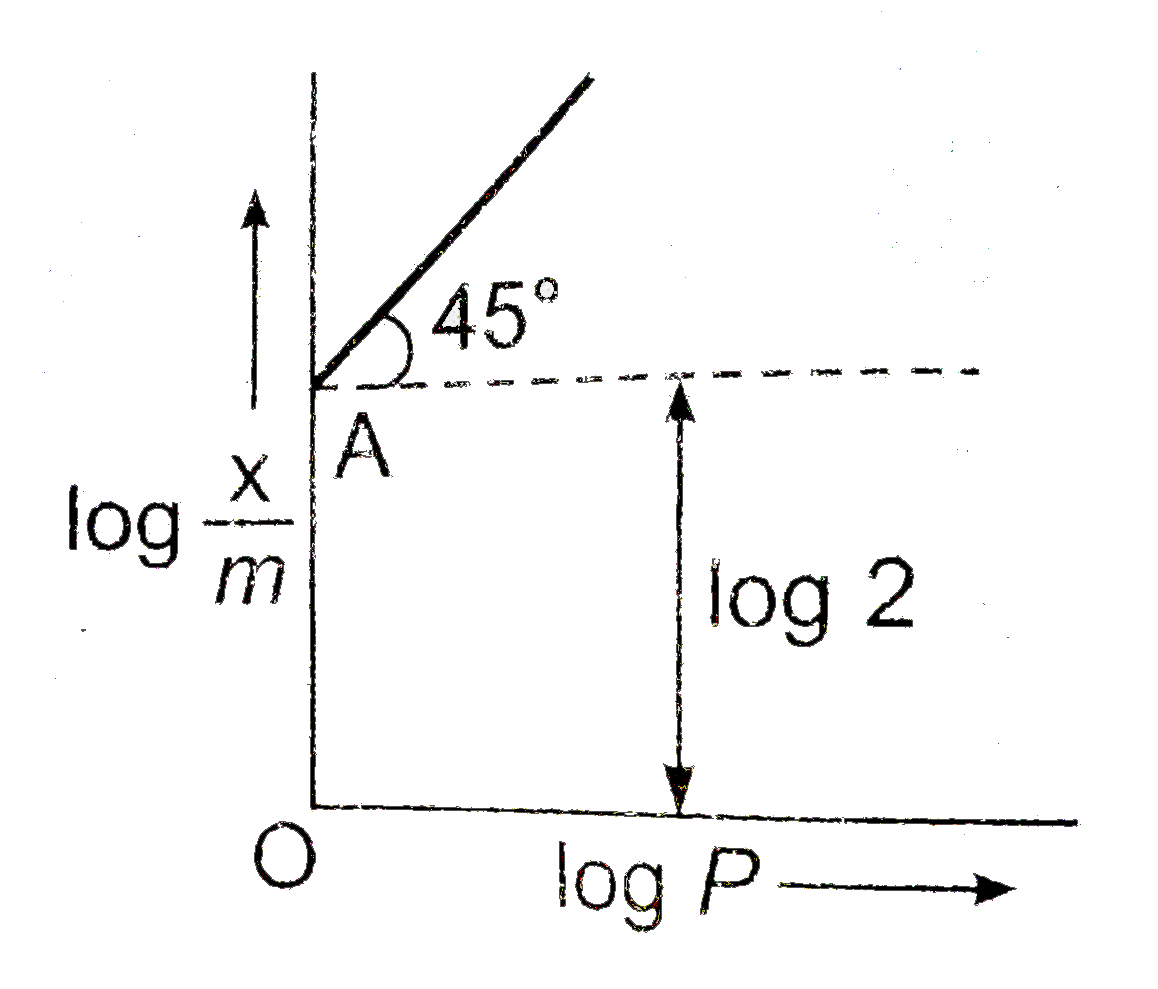 A2B4C8D1
A2B4C8D1 - Question 2 - Select One
The amount of gas adsorbed (x/m) is the function of temperature and pressure, which can be shown as under
xm= f(p,T)
The variation x/m and p, at constant temperature is known as adsorption isotherm
i.e., x/m=f(p) at constant temperature
Seven type of physisorption isotherms are known. Some of them are shown below
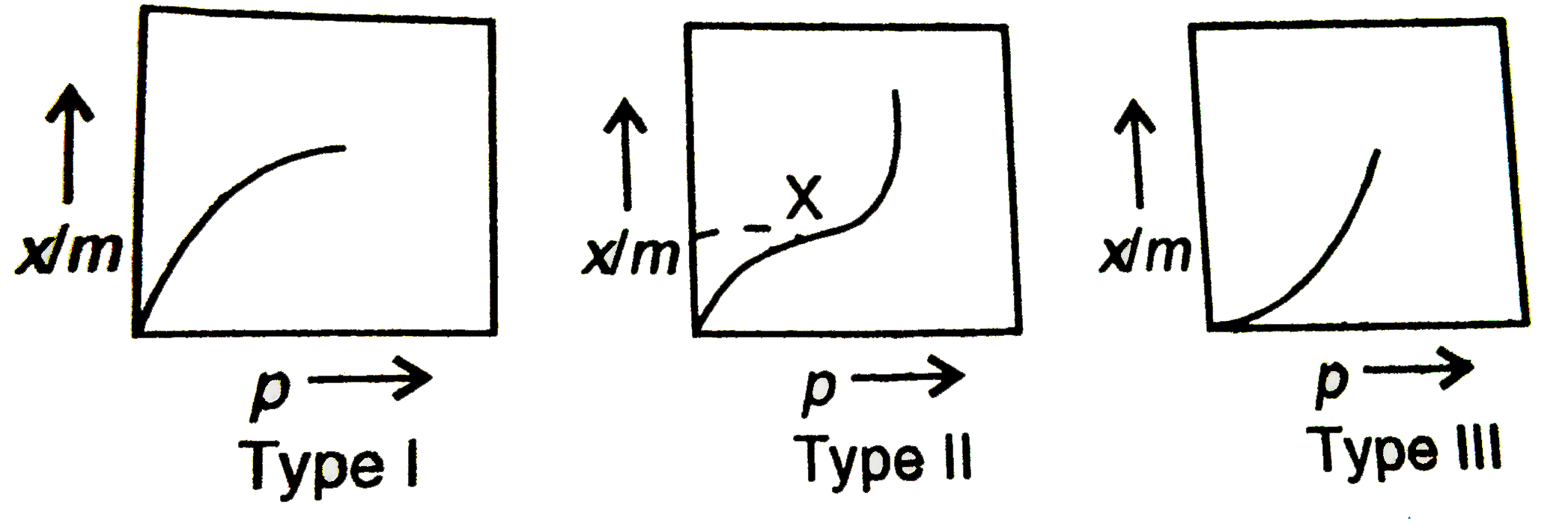
Physisorption Type I. Where there is formation of monolayer on the surface of adsorbent, this type of curve is obtained.
Physisorption Type II. The transition point 'X' of this physisorption isotherm indicates, that the formation of mono layer is complete and that of multilayer is started.
Physisorption Type III. This isotherm has no transition point. In this type of curve, the multimolecular starts before the completion of monomolecular layer.
On the basis of this comprehension, answer teh following question from the physisorption isotherm of a gas on a solid shown as under.
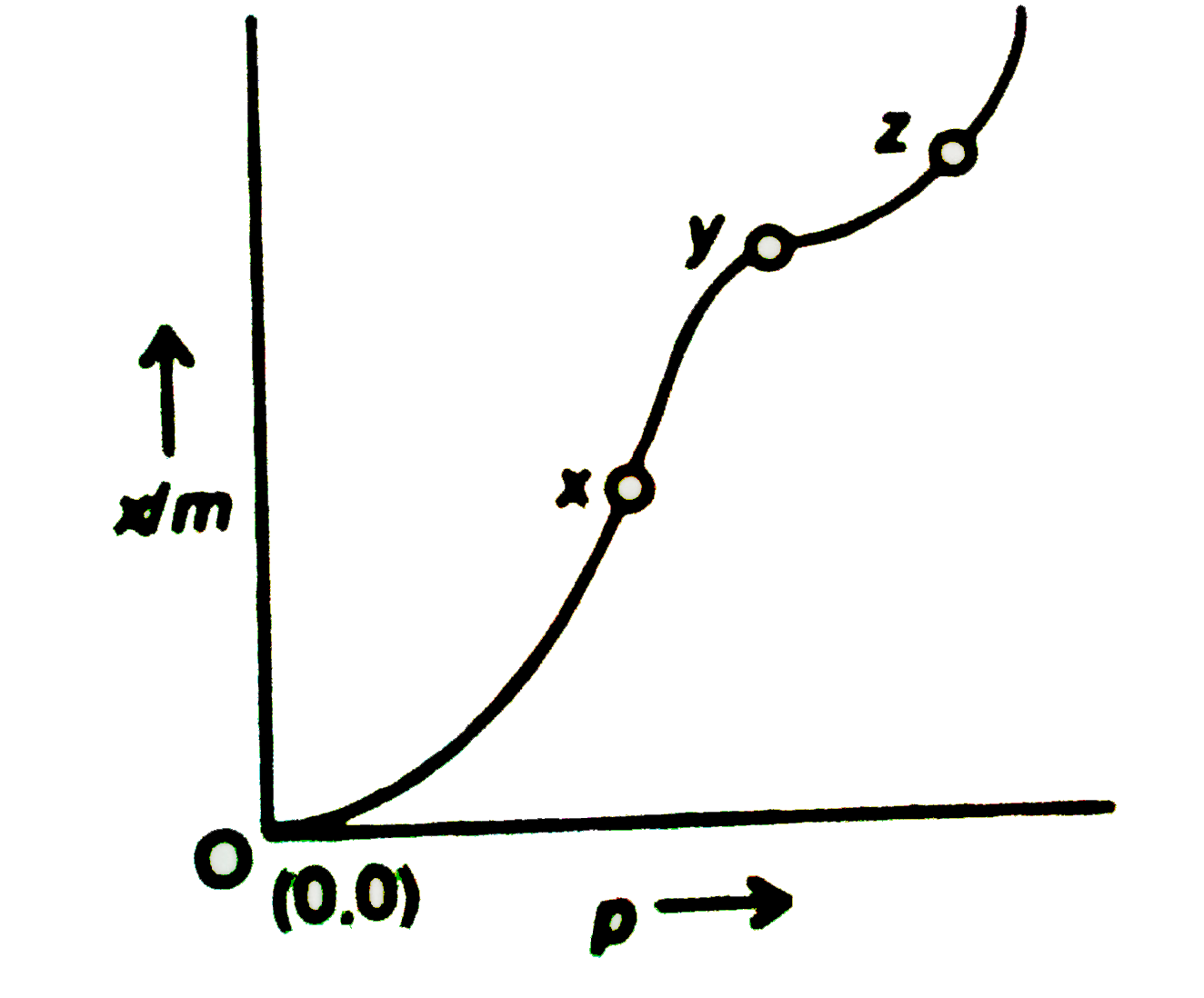
The portion ''OX'' of the physisorption isotherm representsAx/m is directly proportional to pBx/m is linear function of pressureCadsorption isotherm has no transition point, the formation of multi-molecular layer starts before the completion of monomolecular layerDBoth B and C - Question 3 - Select One
The amount of gas adsorbed (x/m) is the function of temperature and pressure, which can be shown as under
xm= f(p,T)
The variation x/m and p, at constant temperature is known as adsorption isotherm
i.e., x/m=f(p) at constant temperature
Seven type of physisorption isotherms are known. Some of them are shown below
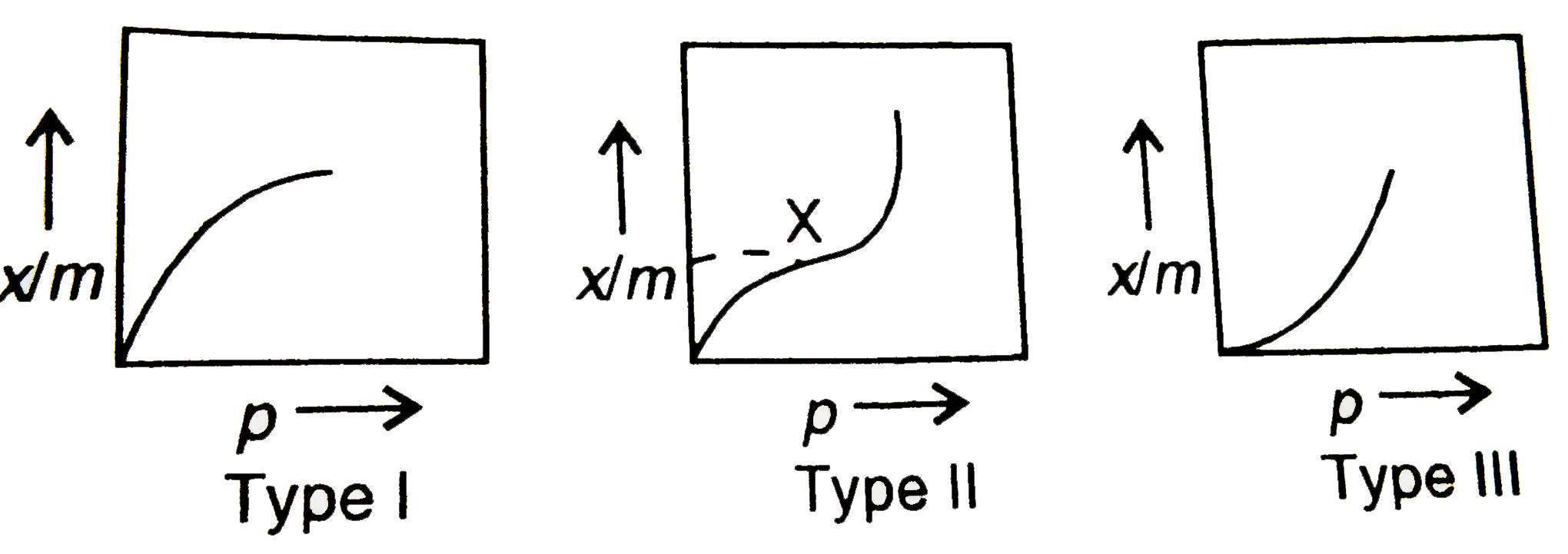
Physisorption Type I. Where there is formation of monolayer on the surface of adsorbent, this type of curve is obtained.
Physisorption Type II. The transition point 'X' of this physisorption isotherm indicates, that the formation of mono layer is complete and that of multilayer is started.
Physisorption Type III. This isotherm has no transition point. In this type of curve, the multimolecular starts before the completion of monomolecular layer.
On the basis of this comprehension, answer teh following question from the physisorption isotherm of a gas on a solid shown as under.
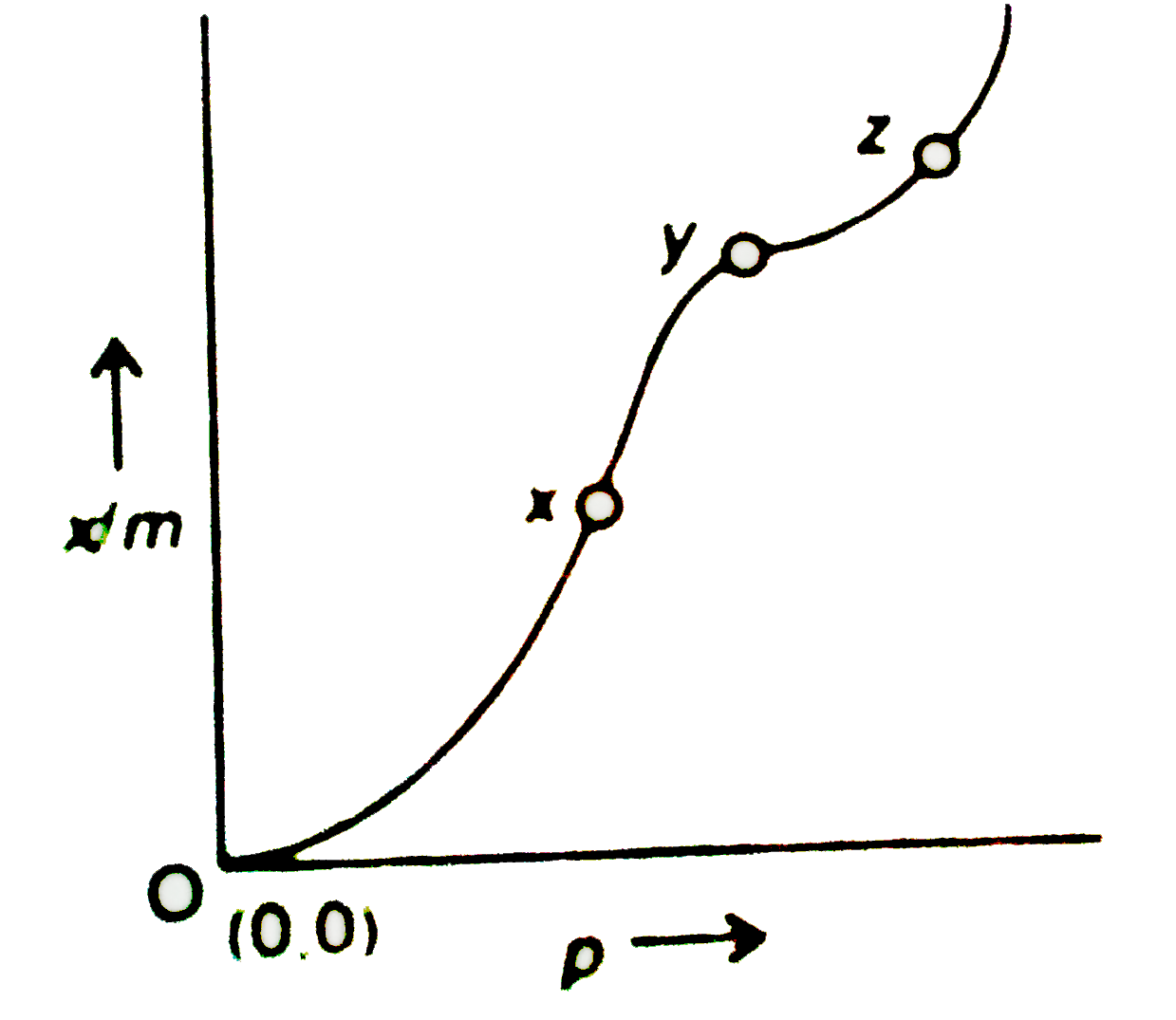
The point Y of physisorption isotherm correctly representsAformation of monolayerBformation of multilayerCfirst monolayer formation thereafter the formation of multilayerDnone
Pressure vs volume graph at constant temperature is known as…………….
View SolutionThe graph between PV vs P at constant temperature is linear parallel to the pressure axis.
View SolutionThe curve between adsorption and pressure at constant temperature is called as
View SolutionA curve drawn at constant temperature is called an isotherm. This shown the relationship between :
View SolutionA graph is plotted between extent of adsorption vs pressure (P) at constant temperature, the Frendlich equation at points A, B, C respectively are:
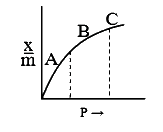 View Solution
View Solution

